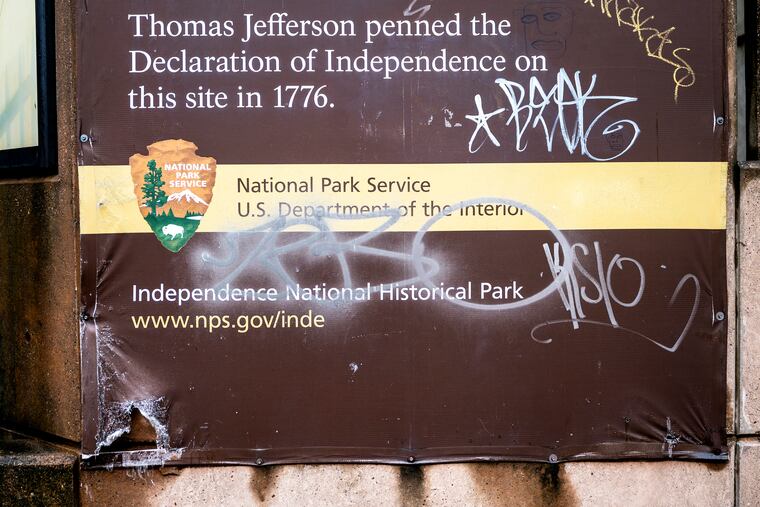Philly needs help throwing America’s 250th birthday bash | Editorial
The federal government needs to be more involved in making sure the city where it all began is ready for the sestercentennial in 2026.

Philadelphia is the most significant city in the history of this country’s birth. Sure, Bostonians will protest it was the Boston Massacre that set off the American Revolution. But even the Massachusetts firebrands who began the rebellion had to make a road trip to Philly to declare independence and form our first national government.
Given that fact, shouldn’t that government be doing more to help Philadelphia prepare for the thousands who will want to be in the city where it all happened to celebrate the 250th anniversary of America’s birth?
That doesn’t absolve state and local governments of their responsibilities, but when it’s a milestone beyond the bicentennial that we’re talking about, the federal government needs to be more involved. Unfortunately, its failure to acknowledge that reality is likely yet another result of the divisive politics that has handcuffed this country in so many ways that aren’t always evident.
So, let’s break it down.
» READ MORE: Honoring America’s military sacrifices, on D-Day and today | Editorial
Independence National Historical Park will be ground zero for Philadelphia’s sestercentennial events, but it’s doubtful it will be ready by 2026. That’s a problem the federal government should help address because the National Park Service has ultimate authority over all 388 national parks, including the 54 acres that makeup Independence Park and the Liberty Bell Center.
It’s hard these days for the park service, which is a branch of the U.S. Interior Department, to pay for even routine park operations. Blame that on a conservative movement in Congress and the federal courts that has less to do with fiduciary responsibility than it does hamstringing federal agencies it considers part of the “deep state.”
As a result, when Congress finally passed an appropriations bill in March that included money for the National Park Service, it was not only four months into the 2024 fiscal year but the legislation also shorted the agency out of $150 million of the funds it received for the 2023 fiscal year. That’s hard to fathom given the 10% increase in park visitors and 13% drop in park staffing that has occurred since 2012.
A recent report by the National Parks Conservation Association noted that despite two-thirds of America’s national parks being dedicated to history and culture, budget cuts over the past few years have forced the National Park Service to “prioritize the management of natural resources over the cultural resources that tell our country’s history.”
With the White House facing more pressing issues than a celebration two years away, Philadelphia will likely have to play with the cards in its hand. But we must also call out the so-called patriots who have cut funding to the very agency given the role of promoting American history as it approaches its 250th birthday.
Congress should be making special appropriations to ensure this celebration is as memorable as the bicentennial. For example, one-time funding could be used to help reopen Declaration House, where Thomas Jefferson resided when he wrote the Declaration of Independence. It was reconstructed in 1975, but has since fallen into disrepair, and was closed in 2018.
» READ MORE: Biden must help protect democracy at home — and next door | Editorial
Other historic buildings in bad shape include the Dolley Todd House and Bishop White House. With renovations and repairs, tourists might be able to view them both by 2026.
Our city of eternal optimists — and not just Phillies, Flyers, and Eagles fans — have learned over the years to prepare for disappointment before it becomes inevitable. And it’s possible that additional federal funding will arrive in time to help prepare for the sestercentennial. An election this fall may have something to do with that.
Meantime, state and local government, civic, and philanthropic leaders should up their game to make sure Philadelphia doesn’t let down America in 2026.
The Independence Philanthropic Trust raised $1.2 million last year to help fund tourism at Independence National Historical Park. But Kathryn Ott Lovell, president and CEO of the Philadelphia Visitor Center Corp., says 10 times that amount of public support is needed annually. “We’re agnostic about where the money comes from. That’s up to our elected officials to hash out,” she told Inquirer columnist Stephanie Farr.
Ott Lovell’s point is well taken. It’s time for a meeting of local minds to get better prepared for an event that not only this city but the entire United States of America will long remember.